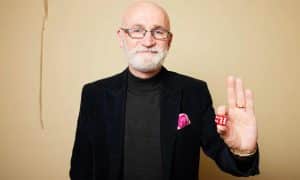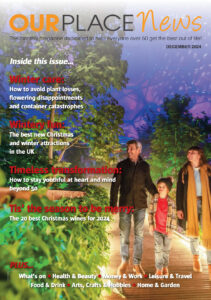Frank Farrell had loved magic since he was a child. But it was only after retiring that he began to perform professionally. Now he is living exactly the life he wants to live.

The Guardian reports that when Frank Farrell’s retirement day came in 2018 – after 35 years of teaching – everyone thought he “would be straight down the pub to celebrate”. Instead, he stayed sober and prepared his materials: the next day he began his new career as a magician.
He was 60, and he didn’t yet feel like a magician, but that weekend Mr Farrell the English teacher gave way to Magic Frank. Under this stage name, he performed 10 shows at a Harry Potter convention in Manchester.
Farrell had been dabbling in magic since his 30s, but the scale of these gigs – he was paid nearly £2,000 – struck him as “a mark of
respect” and validation. “I started to consider myself a magician, not someone who does a bit of magic on the side.”
A mentalist who specialises in card tricks, Farrell performs “parlour shows” at weddings, birthdays or Women’s Institute gatherings. The audience’s gaze is so intense, he feels his hands burn.
Applause breaks from this “sense of wonder… Someone has seen something that logic tells them cannot happen, but which they’ve just seen happen,” he says. “Usually people start laughing. It makes me laugh as well. It feels good.”
As a child, Farrell loved magic. The son of Irish immigrants – his father worked in building foundations, his mother as a home help – he grew up in Romford, Essex. Occasionally he trekked to the joke shop on Tottenham Court Road in London to splurge his pocket money on a stink bomb or two, or a device to vanish a ha’penny.
“But it fizzled out because there was nothing to nurture it,” he says. “I didn’t know that there’s thousands of books on magic.” Instead, he got into acting. “I think you can see a theme here,” he says, sounding every inch the English teacher. “A need for an audience.”
He reprised the magic in his 30s after he and his wife, Sheila, returned from a trip to India. Sheila had impressed some children with an illusion in which she seemed to pass a thread through her neck. Farrell thought: “When I get home I’ll learn some. It’s a useful thing if there’s children around.”
He bought a magic book, practised tricks, even found a magic club in Manchester. He and Sheila had two boys, who were mostly
unimpressed by the tricks as children. Farrell never worked his magic at school, except as an activity during enrichment week, when pupils had a chance to learn something different to their normal lessons.
In some ways, maybe teaching was another parlour show, though. Farrell’s style was “a bit offbeat… I played music. I tried to bring comedy into the classroom.”
He put on voices, loved wordplay, and for minor misdemeanours asked students to apologise to his pot plants. At his final summer fair, some of the students wore masks with his face on.
Teaching, like magic, is transformative – albeit “a much slower process of transformation”, he says. “With magic you get immediate
feedback if it works well. In teaching, that moment might never come. Even if you have had that effect, you might not know.”
At first it was a shock to live life without a timetable. But Farrell now rehearses for an hour a day, has up to nine bookings in a month, and spends the rest of the time pitching, handling enquiries and deepening his art.
He has finally shaken off any sense of being an impostor. “I can genuinely call myself a magician, because people are paying me to do it.”
Clearly, he says, needing validation is a bit of a theme, but he is unsure why and doesn’t like to “navel gaze”. Maybe it “came from having a very ordinary background”, but adds: “Don’t we all want to feel special?”
The ability to transform and to create wonder are important to Farrell, and I ask what, in himself, has caused him the greatest wonder?
“I find the process of becoming older quite amazing,” he answers. “I have discovered that I am far more self-confident, more relaxed … I am living exactly the type of life I want to live.” When people ask about his retirement he likes to reply: “I’ve always been happy but never been happier.”
(Story source: The Guardian)

